The skin matters as much or more than what’s inside.
Kenny Lemes (Source: La Voz)
“Writing and taking pictures (artistic creation in general) is to enable worlds. When the image is new, the world is new.” [Kenny Lemes (KL) glosses Regis Débray in Life and Death of the Image; source: La Tinta].
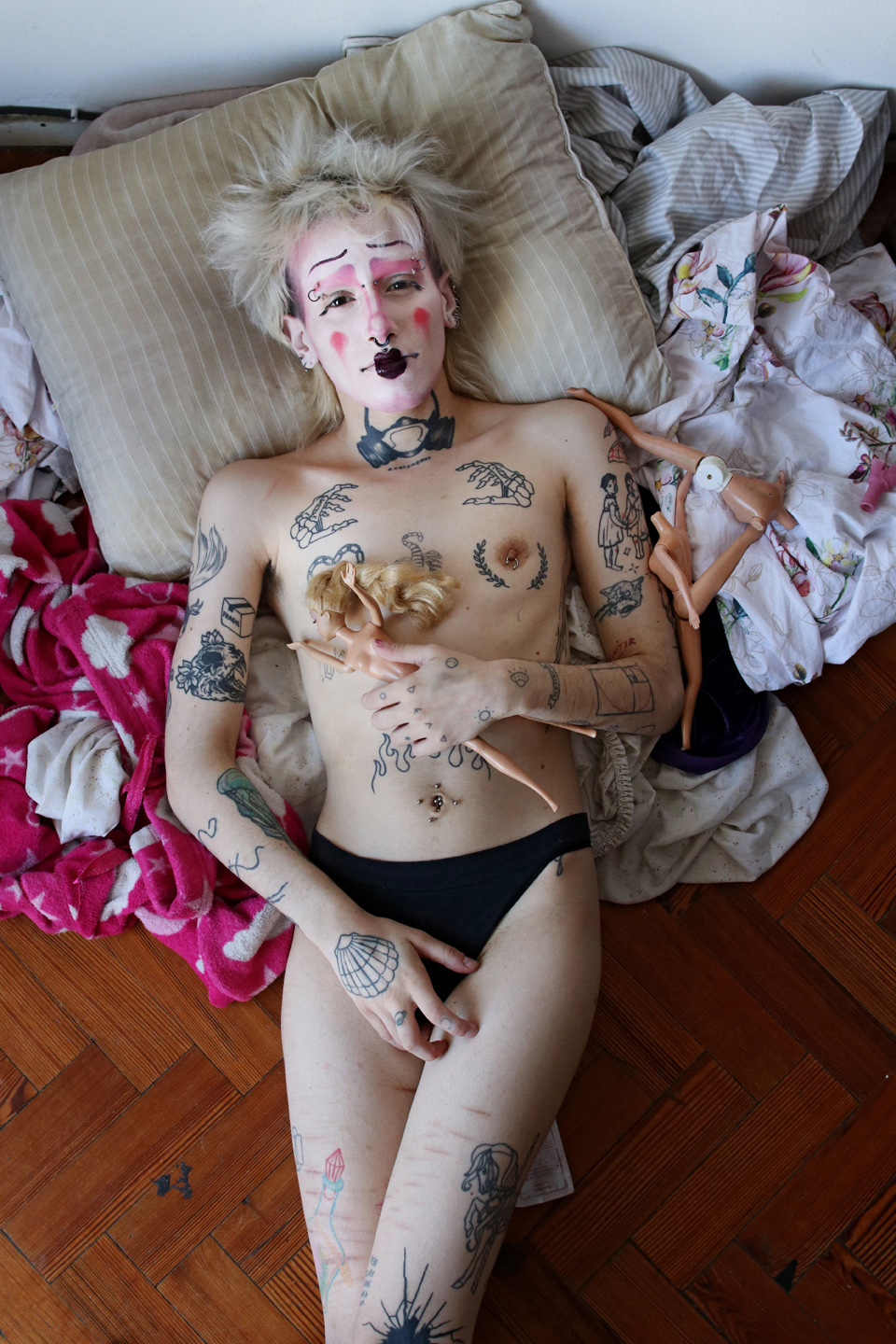
“There are new unicorns in this contemporaneity, whose existences are not justified from magic, faith or mysticism; they carry, in their evidently earthly bodies, the idea of a countercultural monster that we cannot stop looking at and that is still, in many ways, indecipherable. Unmanageable. Free.” [KL: La Voz]
“Historically the image has served to construct the idea of ‘world’ that those who wield power, that which the opinion formers have needed to cement the hegemony of their discourses. They have used images (and their popular, massive penetration) to ‘normalize’ ideas. […] What remains outside this gaze is made invisible, marginalized, destroyed. It does not belong in the world. As something that is not world, that is outside. My photography addresses this ‘outside the world.’ It seems to me that there are already many people taking beautiful pictures of beautiful people, and they do it very well. I also admire ‘the beautiful.’ But it is important to enable other truths, other ways of understanding who we are as people. Far from the capitalist definitions of what it is to be a successful, fruitful, productive person. We don’t all agree or live by the same ideas of ‘beauty,’ ‘love’ or ‘success.’” [KL: VIST (Visual is Telling)]
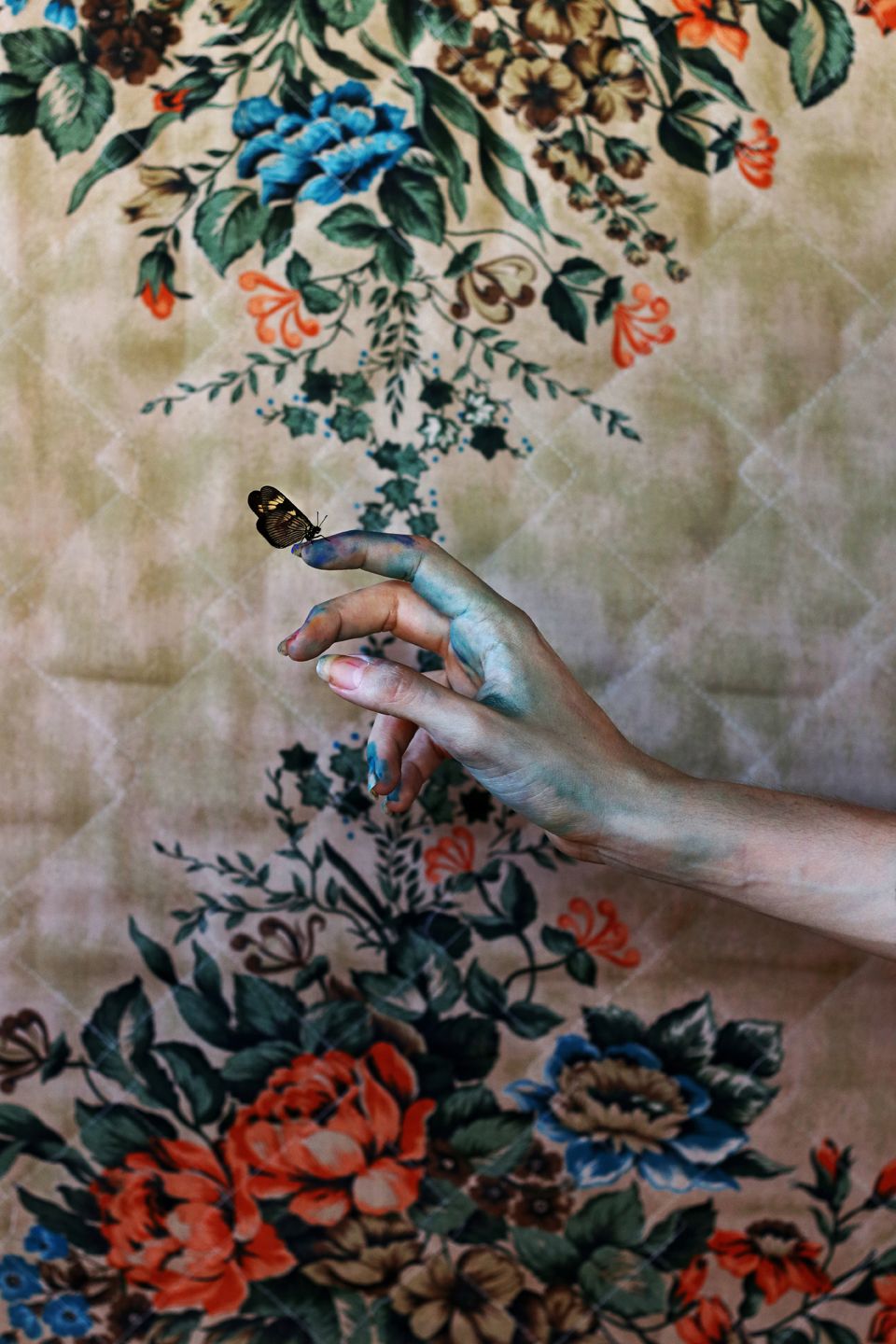
“I am not interested in the truth, I am not a documentary photographer. What I’m looking for has nothing to do with the literal record of things that happen. I am interested in fantasy as a mystery or an unanswered question, or the invention of new possible worlds. I am interested in the image that, instead of portraying reality as a passive factor, generates it. My interest is in desire.” [KL: La Voz]
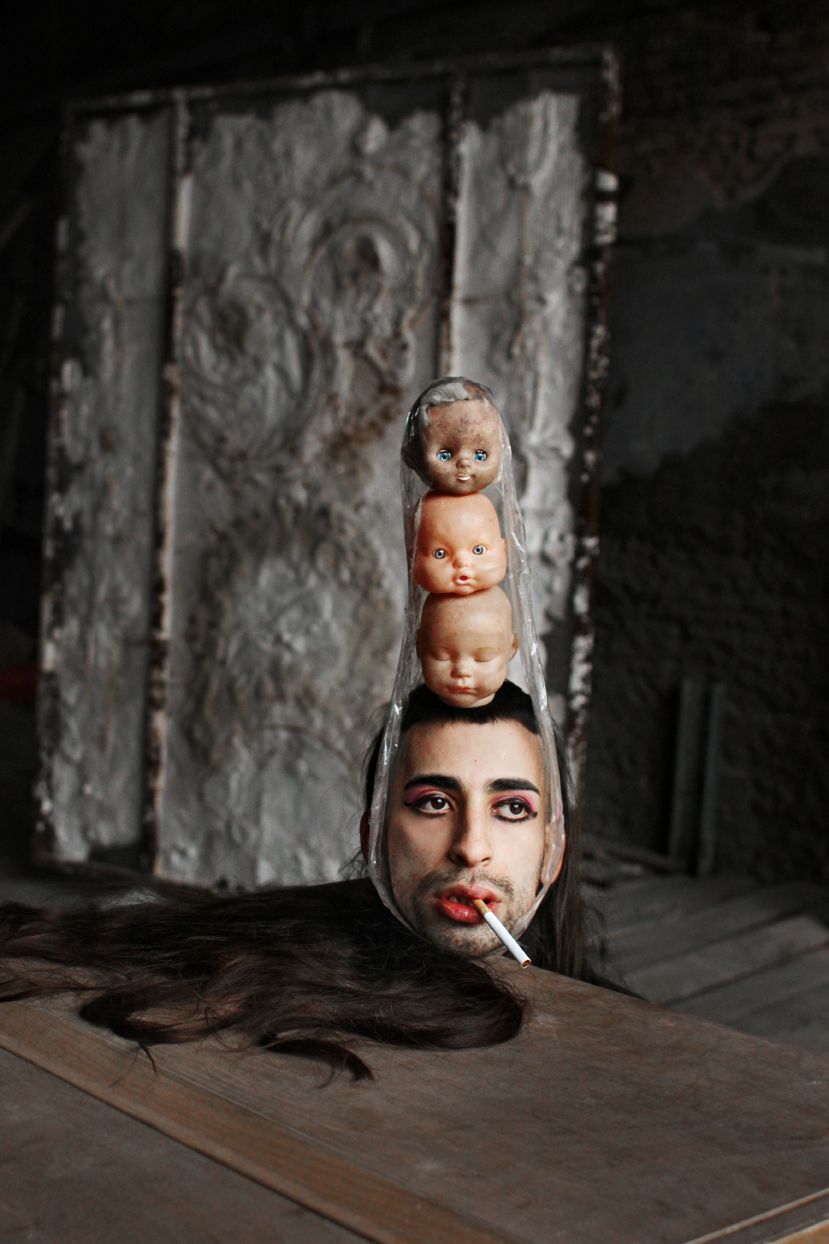
“I am a deeply pessimistic person who looks at the world as a hostile place full of suffering. I think what I do at the end of the day is the way I found to help myself to see beauty in the places where one would least expect to find it. In the midst of chaos, of decadence, among the debris of capitalism. In loneliness, in the absolute inability to find a direction for existence, and in the moments where everything is pain.” [KL: excerpt from interview for another media shared with El Estornudo by the photographer]
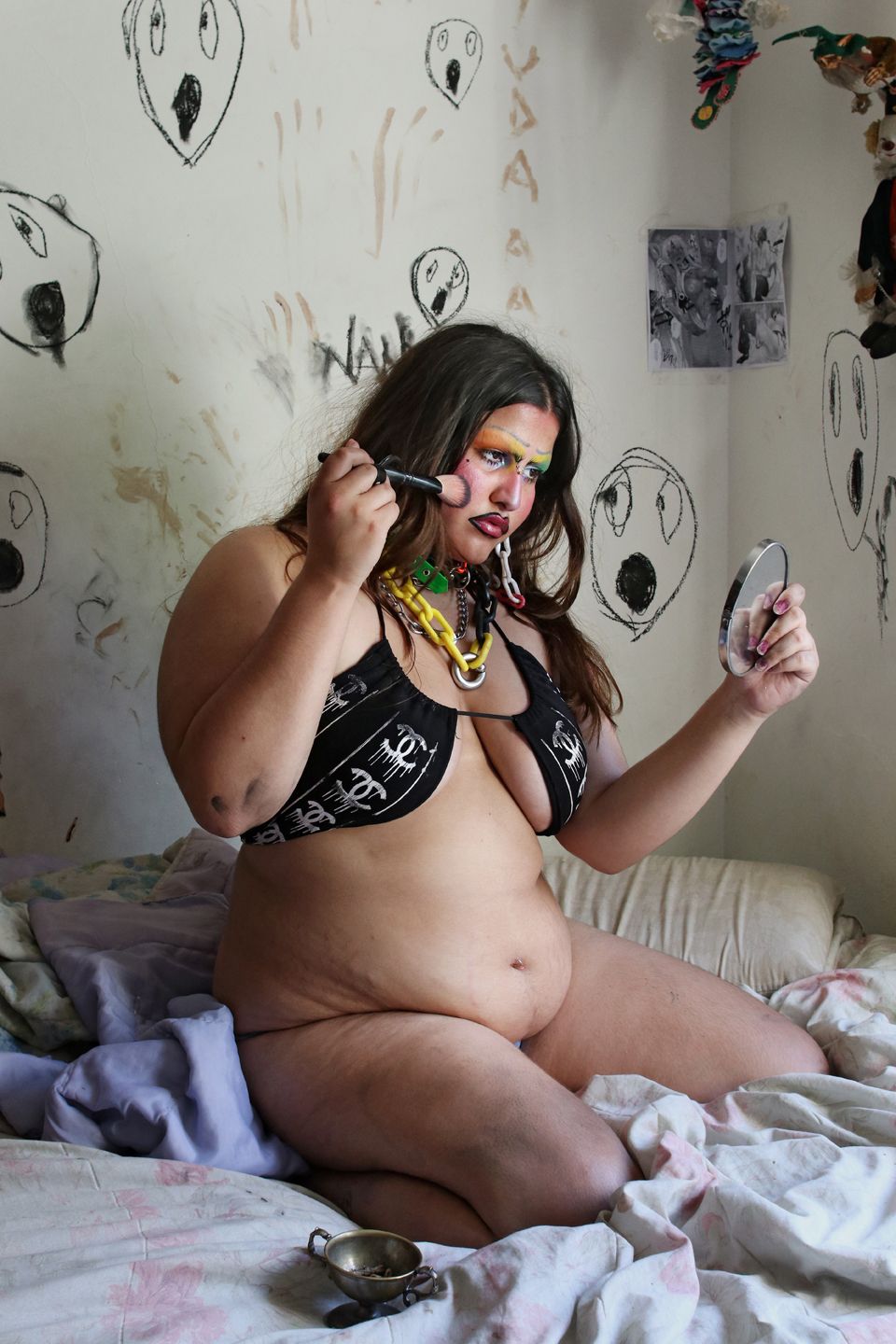
“If politics is a tool for change, I believe that desire is our own political engine. Everything we do in our daily and individual lives, every small gesture in the quest to validate our desires and desiring bodies is a political act. Going out in the street dressed the way you want, not shaving, showing your tits, kissing in public with your gay partner, loving each other out of the closet, walking hand in hand, giving a doll to your son, hiring trans and transvestites, not eating meat or eating less, making dissident identities visible and giving them a place in art, being a photographer (in my case) and working on ‘the ugly,’ on death, chaos, pain or decadence, respecting the desire not to be a mother, devoting yourself to whatever you feel like doing instead of what you are supposed to be doing, having an overweight body and wearing a bikini, letting go of the belly we all hide, or being happy. Being happy is a great political action.” [KL: VIST (Visual is Telling)]
“For a long time, we’ve been told that the outside, the surface, is not important, that what’s important is what’s inside, and it seems to me that the skin is as much or more important than the inside, especially in artistic creation. I want to portray people who are not easy to pigeonhole at first glance, whose existence cannot be summarized by looking at their external particularities. Sometimes you can do it more than others, but I am interested in the portrait that makes you stop, that you want to glance at and move on, but forces you to go back. Those abysses, those grays work as the enigma we all want to solve. What does that tattoo say? Are those scars for real? Are those medicines on the bed his? Is he crying? Is he a man or a woman? Is the Gioconda serious or smiling?” [KL: La Voz]
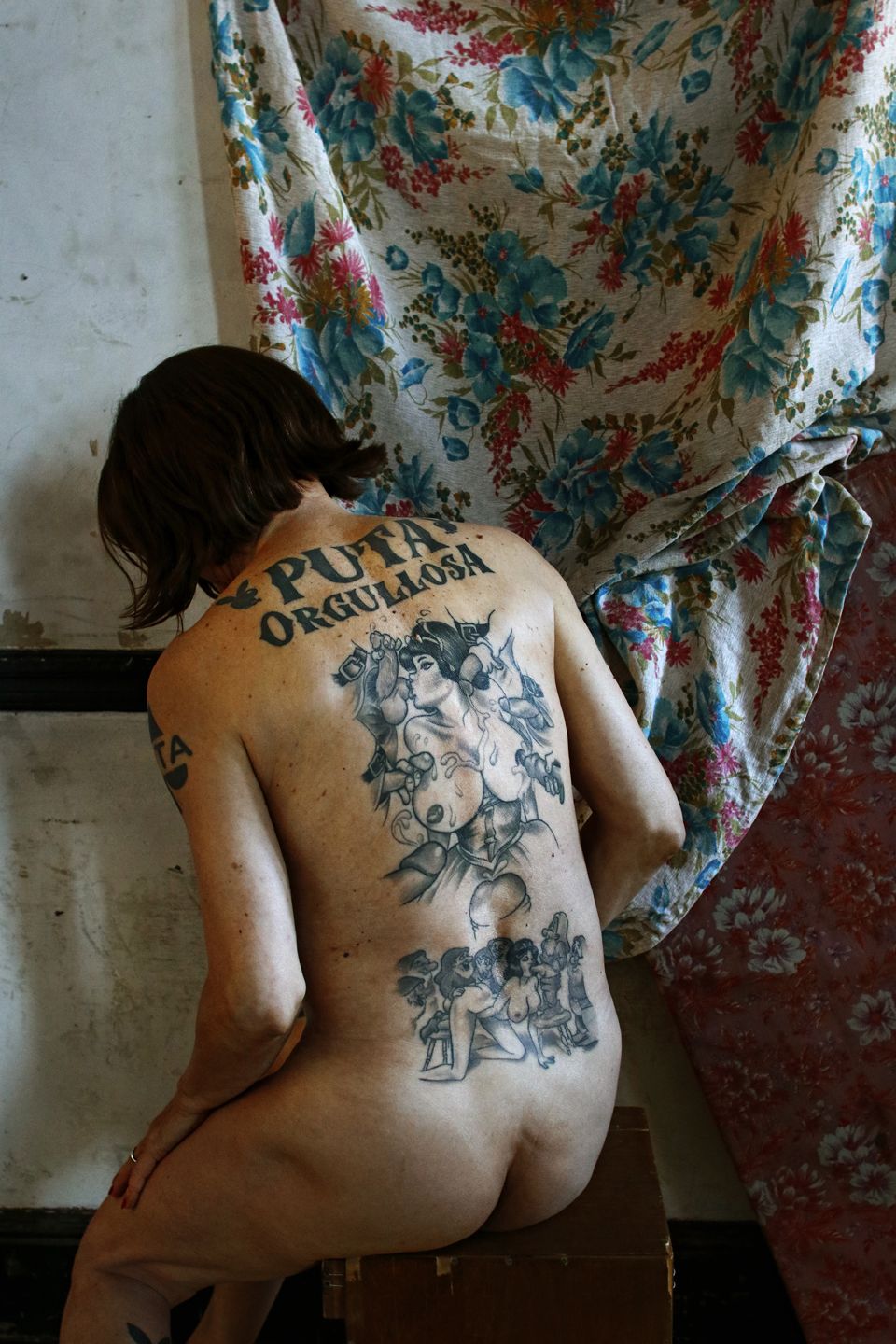
“The reality is that for me photography (and Art in general) is a medium through which I experience the world. All my interests regarding my environment and my transit as a human on this plane are captured in some way or another in my photos: nature, desire, death, magic, sexuality, the body, color.” [KL: excerpt from interview for another media shared with El Estornudo by the photographer]
“I am self-taught, I never studied art or photography in a formal way, everything I know I learned by looking. The expected thing as a photographer would have been that I would have been attracted to black and white. But I would die of grief if I had to photograph a gray world. I’m attracted to color just as I’m interested in diversity. I want the brown girl to be brown, and I want her to be the richest, most beautiful brown.” [KL: La Voz]

“In Gadamer’s view, negativity is essential to art. It is its wound. From the work of art comes a jolt that collapses the viewer. The polished and the smooth have a completely different intention: it molds itself to the spectator, it coaxes a ‘like’ from them. The only thing it wants to do is to please, and not to knock down. / Today’s positivist society increasingly eliminates the negativity of the wound. And this can also be said of love. Any costly intervention that could lead to hurt is avoided. The libidinal energies, as if they were capital investments, are dispersed among many objects to avoid a total loss. / The wound is the moment of truth that encloses the seeing. Without wound, there is no truth.” [KL: quotes on Instagram the book The Salvation of the Beautiful, by Byung-Chul Han, who glosses Hans-Georg Gadamer].
***
(Photographs authorized by Kenny Lemes for El Estornudo).














